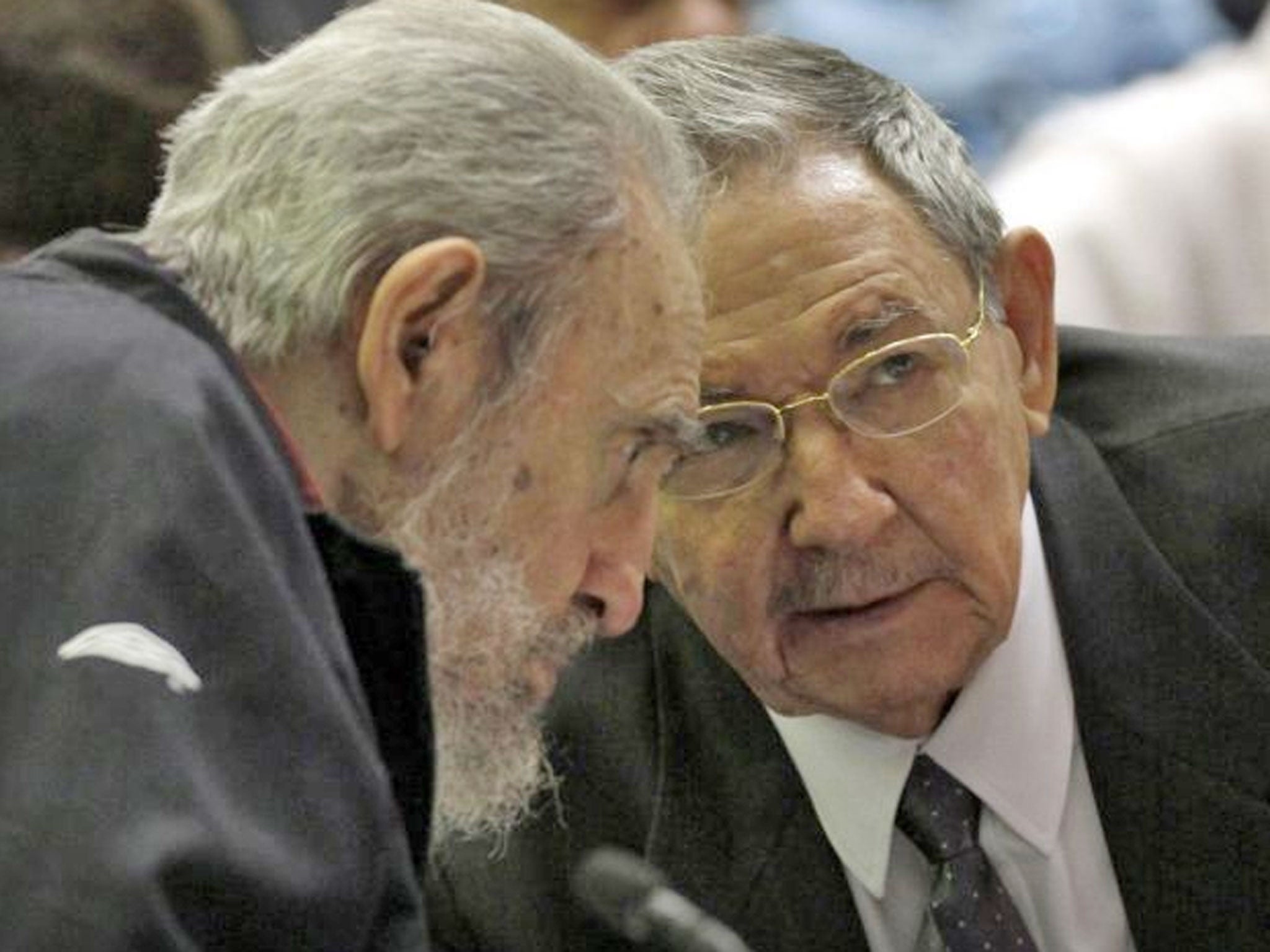For the first time since 1959, Cuba faces life after Castro
Ageing President Raúl Castro, brother of Fidel, appoints new deputy and signals transition to democracy

Your support helps us to tell the story
This election is still a dead heat, according to most polls. In a fight with such wafer-thin margins, we need reporters on the ground talking to the people Trump and Harris are courting. Your support allows us to keep sending journalists to the story.
The Independent is trusted by 27 million Americans from across the entire political spectrum every month. Unlike many other quality news outlets, we choose not to lock you out of our reporting and analysis with paywalls. But quality journalism must still be paid for.
Help us keep bring these critical stories to light. Your support makes all the difference.
As they digested yesterday’s solemn pledge from Raúl Castro at the annual meeting of the National Assembly to make his new five-year term as president his last, the people of Cuba today pondered a future where – after all these decades of stubborn isolation and political repression – a Castro would no longer be in charge.
The pronouncement – “this will be my last term,” Mr Castro, 81, said firmly, with his elder brother and the former president, Fidel, looking on – was at once shocking and barely so. But at the very least it means that by 2018, Raúl will relinquish power and the leadership of the island nation will for the first time pass to someone who was not part of the 1959 revolution that brought Soviet-style socialism to the island and expelled capitalism.
Since taking over from Fidel in 2008, the younger Castro has edged Cuba away from a Soviet economic model of centralised control. He has issued licenses for small private enterprises, allowed for a limited property market, lifted deeply unpopular travel restrictions and given some autonomy to state enterprises. But no one for now is mistaking these reforms for an abandonment of one-party control or indeed of socialism, even if it is to become less pure.
“I was not chosen to be president to restore capitalism to Cuba,” he told delegates. “I was elected to defend, maintain and continue to perfect socialism, not destroy it.” That democracy remains beyond the horizon was evident in the anointing on Sunday of a new number two who thus becomes the favourite to succeed Mr Castro. He is 52-year-old Miguel Díaz-Canel Bermúdez, an electrical engineer and former Minister of Higher Education.
When Fidel Castro fell ill with a near-fatal stomach ailment in 2006, Cuba was still largely in the abyss opened by the collapse of the Soviet Union. Raúl promised reforms that were finally laid out in a multi-year plan adopted amid fanfare two years ago. All the while, he has argued for retiring the first generation of leaders who were part of the revolution to make way for new blood. “Our greatest satisfaction is the tranquillity and serene confidence we feel as we deliver to the new generations the responsibility to continue building socialism,” he said in his address.
On elevating the silver-haired Mr Díaz-Canel to his new position, Mr Castro said that Cuba had reached a point of “historic transcendence”. He went on: “It represents a definitive step in the configuration of the future leadership of the nation.” Mr Castro spoke of capping all political posts, including the presidency, to two five-year terms, and hinted at other reforms to the constitution far-reaching enough to warrant a national referendum.
“This is the start of a new era,” insisted Roberto Delgado, a 68-year-old retiree from the pleasant Miramar neighbourhood of Havana that is home to foreign embassies as well as to many top party lieutenants. “It will undoubtedly be a complicated and difficult process, but something important [has] happened.”
In the Cuban exile community of south Florida, there was a more sceptical reaction. “It would have been big news if he resigned today and called for democratic elections,” Alfredo Duran, a Cuban-American lawyer and moderate exile leader noted yesterday. “I wasn’t worried about him being around after 2018.”
For Washington, which has expressed frustration at the slow progress of Cuban reform, the changes announced at the weekend are minimally important for now and will not affect the trade embargo that continues to define relations with the island nation. Yet they hold very great significance for the future because the trade sanctions law specifically says they will remain in place so long as a Castro is charge.
The Castro years
1959 Fidel Castro overthrows US-backed dictator Fulgencio Batista. He begins dismantling capitalist system, and nationalises US companies.
1961 US breaks off diplomatic relations with Havana, and sponsors an unsuccessful invasion by Cuban exiles at the Bay of Pigs. Castro proclaims Cuba a communist state.
1962 Nuclear war comes dangerously close with missile crisis.
1992 US tightens longstanding embargo on Cuba. Castro allows limited individual private enterprise.
2008 After prolonged illness, Fidel steps down. Raúl takes over, beginning a string of reforms by lifting bans on owning mobile phones and computers.
2013 Raúl Castro, 82, says he will step down after his second term.
Subscribe to Independent Premium to bookmark this article
Want to bookmark your favourite articles and stories to read or reference later? Start your Independent Premium subscription today.
Join our commenting forum
Join thought-provoking conversations, follow other Independent readers and see their replies
Comments